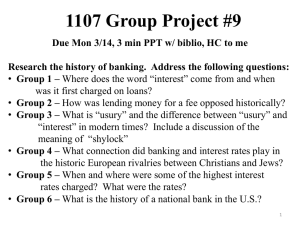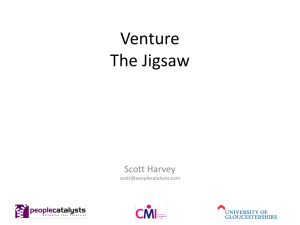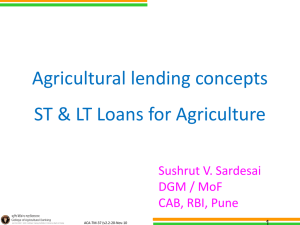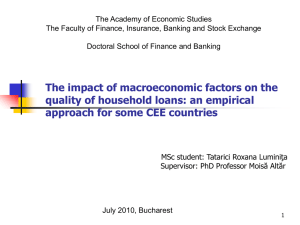Funding Simplification 2013/14
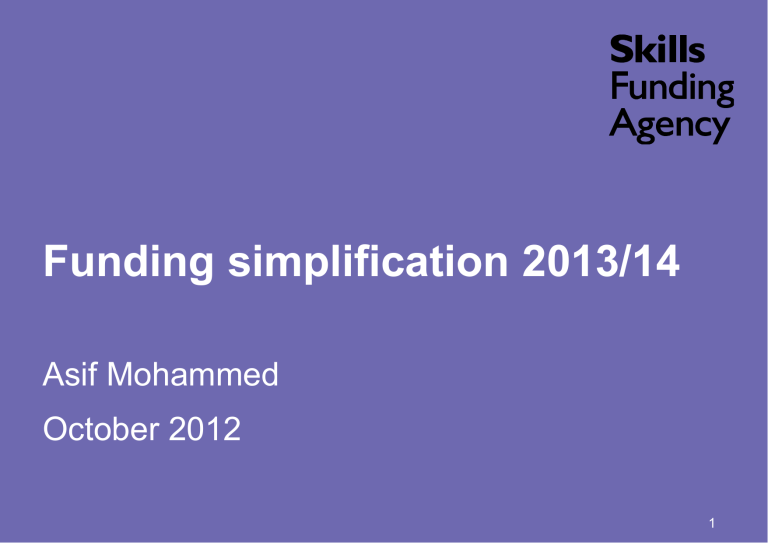
Funding simplification 2013/14
Asif Mohammed
October 2012
1
Vision
• Reduce number of budget lines
• Reduce the number of funding rates
• Simplify funding methodology
• Streamline approach to supporting learners
• Not for simplification sake
2
The right balance
Simplification
Rough justice
Complexity
Precision
3
The new simplified funding system
Key features:
• a single funding system
• a simple funding formula
• simplified funding rates
• a single earnings methodology
• a single payment process (depending on provider type)
• streamlined support funding
4
Now and then
Current Funding System
Two separate systems and rules
New Simplified Funding System
A single funding system and set of rules
Nine elements to the formula in ALR; six elements in ER Three elements apply across adult skills
Elements based on different data sets Elements based on actual in-year delivery
Provider factor calculated annually for ALR No provider factor
Single set of rates across adult skills budget Different rates for classroom, workplace and
Apprenticeship aims
Rates expressed in SLN glh and SLN Rates expressed in pounds (£)
Approx 40-50 rates in a single matrix Thousands of different rates
Listed and unlisted rates All listed rates
Two methodologies for calculating provider earnings One methodology based on on-programme instalments and achievement
Fragmented approach to providing additional support to learners
A single budget for ALS; streamlined learner support funds
5
What, why and how
FUNDING = RATE (X AREA COST)
• Earnings methodology similar to current ER funding methodology –
*20%* of rate is ‘reserved’ for achievement, remaining 80% is spread over the number of months planned for delivery
• Most difference is for classroom learning, eg, removal of provider factor (which included programme weighting and success rate), no
‘unlisted’ rates
• Rates changes for classroom and workplace learning due to new rates matrix
• Cap still in place (a max per learner per year, equivalent to current
1.75 SLN)
6
The new rates matrix
(v2, June 2012)
Learning aim type
Programme weighting
1.0
1.2
1.3
1.6
1.72
Award (1-4)
Award (5-12)
Certificate (13-
24)
Certificate (25-
36)
£148
£336
£724
£166
£376
£811
£193
£437
£941
£237
£537
£1,159
£255
£578
£1,246
£1,265 £1,417 £1,645 £2,025 £2,176
Diploma (37-48)
Diploma (49-72)
£1,987 £2,225 £2,583 £3,179 £3,417
£2,573 £2,882 £3,345 £4,117 £4,425
Diploma (73-132) £4,170 £4,670 £5,421 £6,671 £7,172
Diploma (133+) £6,602 £7,395 £8,583 £10,564 £11,356
7
Work still in progress
• Basic skills
• Support funds (ALS, disadvantage, learner support)
• Apprenticeship element (a premium on top of the individual rates for tech cert, NVQ and functional skills) in two parts:
- fixed amount: same for every framework/every sector
- variable amount: depending on framework length and programme weighting
• ALS for 16-18 Apprenticeships
• Large employers and 25+ Apprenticeships
8
Timeline
• Shadow funding calculations during 2012/13
• No changes in 2012/13 but providers have time to prepare
• Final funding policy published January 2013 for 2013/14
• Agency also considering transitional support arrangements.
9
Read the guidance
Agency website > Providers > Funding Simplification
• Last update June 2012
• Next update (end) October 2012
• Final final final everything sorted guidance due January 2013
10
24+ advanced learning loans – funding ‘allocations’
Asif Mohammed
October 2012
11
24+ Advanced
Learning Loans
•Announced in Skills Investment Strategy 2010-11 and restated in New Challenges, New Chances, December 11.
•Concentrating Government funding on areas where it can have the most impact, means there needs to be a greater shared responsibility for funding courses.
•Government grant funding is focused on young people, those without basic skills and those below 24 and seeking work.
•Public funding for 24 year olds and above on advanced level courses will be in the form of a loan via the Student Loans
Company.
12
24+ Advanced
Learning Loans
• Loans will be available for learners aged 24 and above studying at Level 3 and above.
• This represents between 10-15% of the total adult budget for FE and the vast majority will continue to be grant funded.
• Without the introduction of loans – a reduction in learners.
• Research commissioned on behalf of BIS – three quarters of learners asked say they would consider learning funded through a loan.
13
Roles and Responsibilities
14
Key dates coming up
• 01 October: indicative funding statements being issued plus draft
Funding Rules for Loans and FAQ
• 7 October: guidance to relationship teams
• October: dialogue with providers
• 6 Nov: feedback on dialogue with providers
• 14 December: final funding statements issued
15
What is a loan allocation??!
• Allocation known as a ‘facility’
• Notional amount based on current loans type delivery and current learner demand
• Enables provider to plan BUT is not a guarantee...
• Actual funding will depend on loans taken out by learners
• £5k de minimis and need to consider providers currently without any
Agency funded loans type delivery that might be planning it
• Split Aug-Mar/Apr-Jul as with other allocations
• Around 800 of 1,050 providers will get an allocation
16
Agency role
• Student Loans Company approves loans and pays funds to provider
• SLC will approve eligible loans even if that takes provider above its allocation
• Agency role to manage budget for providers (through a quarterly review process)
• Agency will provide national monthly data for all providers to see collective draw-down against budget
17



